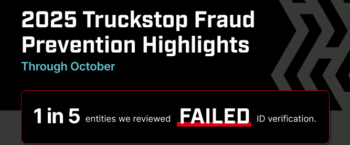Carrier Negotiation Tips from a Broker – Part 1

Find your next load
Make more money starting now.
A common complaint among carriers and owner-operators is around the struggle of negotiating with brokers. Carriers have the distinct feeling that brokers are trying to take advantage of them. What they don’t realize is that brokers are typically working under a narrower margin than they think.
1. Don’t just talk – listen.
Ask your question, and then let the broker explain what their problem is. In other words, listen to them explain the load they need moved. Never forget that you’re not the only one with a problem (trying to find a load and make money). The broker also has a problem: They have a load that needs to be covered and a boss or customer breathing down their neck about it. There will be times that if you hear a broker out, you’ll be told the information you want to hear, and you’ll find that you have a solution to both of your problems.
Always make sure you take the time to listen.

2. Focus on the broker’s pressure – not yours.
If you focus too much on your own needs to get a load and start rolling, you are giving away all of your power because the broker sees that they have the solution to your problem. However, if you view it as more of a give and take, you begin to understand and recognize the pressure that the other side is under to cover a load. Instead, you see that you can provide the solution. This will create a significantly more collaborative effort toward a common goal.
You’re not the only one feeling the pressure, so don’t give all the power to the broker.

3. Show the broker how you can provide a solution to their problem.
If you understand the problem the broker has, you can easily communicate how you can solve the basic needs of their problem. They have a load; do you have a truck and trailer that’s empty? They have specific loading requirements; can you accommodate them? It’s not a bad thing to make sure they know that you can in fact solve their problem. You are easing their worries as the conversation goes on giving them faith in your abilities. Too many times while talking to a carrier and blabbing on answers to the questions being asking, a broker may start to feel uneasy because they aren’t getting any feedback. They could be thinking to themselves, “Do you even have a truck for me, or can we just go ahead and end this conversation?”
Help solve the challenge of getting a load moved by communicating to the broker how you’re going to solve their problem.

4. Know the market and your needs.
This is self-explanatory, and Truckstop.com can help provide the necessary tools to figure out the current market, market average, and your needs as a business owner and operator. The more informed you are, the faster we can work out a deal.
Use the tools at your disposal to go into negotiations with knowledge of the market.

5. Take ownership of the conversation.
This is an important one regardless of whether you called the broker or the broker called you. Take ownership of what your needs are. Everyone knows that you both have the same problem and are looking for a solution, so voice your needs instead of forcing the broker into a corner. Use “I” statements instead of “you” statements. For example, instead of, “Could you give more?” or “You would need to pay me XXX amount of money to take accept load,” take ownership while understanding the broker’s interests. “I understand there is a margin we have to keep in mind, but I would need XXX amount of money in order to haul that load.”
Take ownership of your own needs by using “I” statements to get closer to the goal.
Take a look at Part 2 in this series: Tips from a Broker
Learn more about the Truckstop.com Load Board and how it can help your business.
 Tyler Johnston has spent 6 years at Mercer Transportation where he is a Freight Operations Manager.
Tyler Johnston has spent 6 years at Mercer Transportation where he is a Freight Operations Manager.
Get helpful content delivered to your inbox.
Sign up today.
Find high-quality loads fast, get higher rates on every haul, and access tools that make your job easier at every turn.






